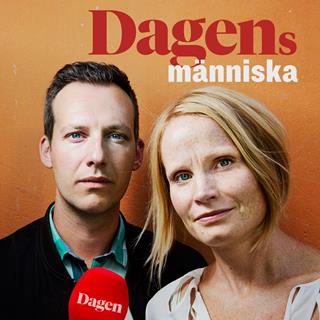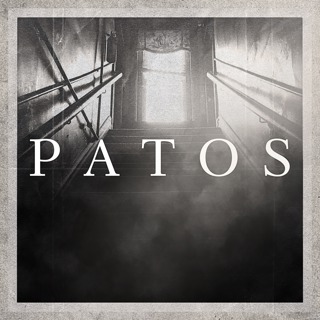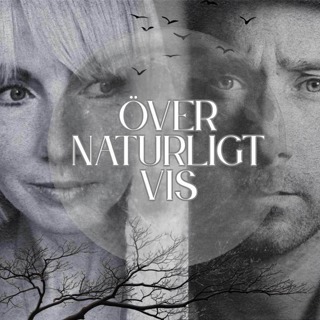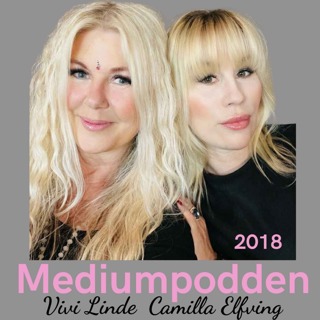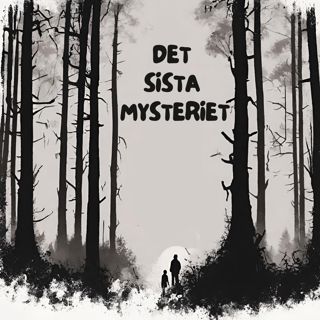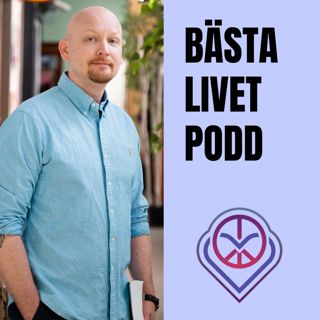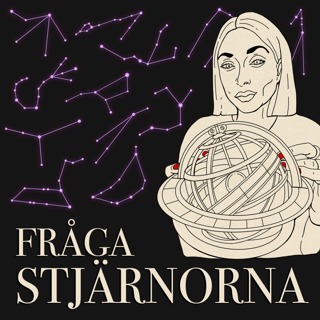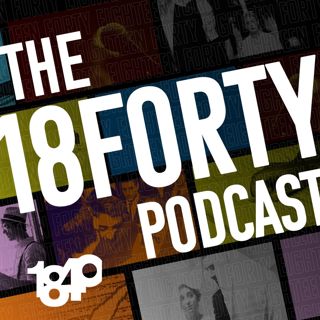
The Legacy of Rabbi Lord Jonathan Sacks
In this special episode of the 18Forty Podcast, we talk to Professor Jonathan Haidt about the late Rabbi Jonathan Sacks in honor of his yahrtzeit.Rabbi Sacks had a profound impact on the Jewish world, with his eloquent words giving a voice to many. He has spoken at length about how to construct a good and meaningful life using Judaism, as well as about morality, consumerism, spiritual truth, politics, and antisemitism.- What is the value of commitment to Judaism?- How can Judaism contribute to our morality?- How can Judaism contribute to our community?- How can one keep faith in Judaism in the modern world?Tune in to hear a conversation about the world of Rabbi Sacks.Man’s Search for Meaning by Viktor Frankl https://www.amazon.com/Mans-Search-Meaning-Viktor-Frankl-ebook/dp/B009U9S6FIThe Righteous Mind by Jonathan Haidt https://www.amazon.com/Righteous-Mind-Divided-Politics-Religion/dp/0307455777The Happiness Hypothesis by Jonathan Haidt https://www.amazon.com/Happiness-Hypothesis-Finding-Modern-Ancient/dp/0465028020The Coddling of the American Mind by Jonathan Haidt https://www.amazon.com/Coddling-American-Mind-Intentions-Generation/dp/0735224897Religion and the Rise of Capitalism by Benjamin Friedman https://www.amazon.com/Religion-Rise-Capitalism-Benjamin-Friedman/dp/059331798XBecome a supporter of this podcast: https://www.spreaker.com/podcast/18forty-podcast--4344730/support.
26 Okt 20211h 20min
![Judith Shulevitz: The World of Shabbos [Shabbos 2/3]](https://cdn.podme.com/podcast-images/D79089FBEF78B78B9B1A2A8AFD27F6A1_small.jpg)
Judith Shulevitz: The World of Shabbos [Shabbos 2/3]
In this episode of the 18Forty Podcast, we talk to author and journalist Judith Shulevitz about the world of Shabbos.Through The Sabbath World: Glimpses of a Different Order of Time, Judith introduced the secular world to the concept of Shabbos. She explores the power of a day of rest and the communal aspect that elevates it.- Does a secular Shabbos of unplugging work?- What is so radical about observing Shabbos?- How important is community for one’s Shabbos practice? Tune in to hear a conversation about the world of Shabbos.For more, visit https://18forty.org/shabbos/.Judith is a journalist, editor, author, and critic. She is currently a contributing op-ed writer for The New York Times. Judith’s book, The Sabbath World: Glimpses of a Different Order of Time, is a deep exploration of our favorite day of rest, from its ancient origins until today. This book weaves together the story of a day but also the story of one person, with ideas and memories melting into each other. Judith joins us to talk about the complex beauty, and challenges, of Shabbos.Become a supporter of this podcast: https://www.spreaker.com/podcast/18forty-podcast--4344730/support.
19 Okt 20211h 15min
![Senator Joe Lieberman: The Gift of Shabbos [Shabbos 1/3]](https://cdn.podme.com/podcast-images/D79089FBEF78B78B9B1A2A8AFD27F6A1_small.jpg)
Senator Joe Lieberman: The Gift of Shabbos [Shabbos 1/3]
In this episode of the 18Forty Podcast, we talk to Senator Joe Lieberman - politician, lobbyist, and attorney - about the gift of Shabbos.Joe Lieberman lives a life in the public eye as an observant Jew. This exemplary dedication to his values is admirable and gives Joe a unique perspective on the benefits of Shabbos.- What gifts does Shabbos grant us that we take for granted?- What lessons can the high-powered life of a politician teach us about powering down for Shabbos?- Is it difficult living as a politician who observes Shabbos?Tune in to hear a conversation about the gift of Shabbos.References:In the Driver’s Seat by Jenna Weissman Joselit https://www.bjpa.org/content/upload/bjpa/jose/Joselit-Jewish%20leadership.pdfHalf Shabbos is No Shabbos by Jonathan Rosenblum https://jewishaction.com/religion/shabbat-holidays/half-shabbos-is-no-shabbos/Is Half Shabbos Really No Shabbos? By Rabbi Shalom Baum https://jewishaction.com/letters/is-half-shabbos-really-no-shabbos/Shabbos: The Political Significance of Jewish Law by Avi Garelick https://www.youtube.com/watch?v=JKvuRm3RzvQEverything Is for Sale Now. Even Us. by Dr. Ruth Whippman https://www.nytimes.com/2018/11/24/opinion/sunday/gig-economy-self-promotion-anxiety.htmlAmerica the Anxious by Dr. Ruth Whippman https://www.amazon.com/America-Anxious-Pursuit-Happiness-Creating/dp/1536628972The Gift of Rest by Joe Lieberman https://www.amazon.com/Gift-Rest-Rediscovering-Beauty-Sabbath/dp/1451627319The 39 Avoth Melacha of Shabbath by Baruch Chait https://www.amazon.com/39-Avoth-Melacha-Shabbath-Regular/dp/0873065867Senator Joe Lieberman is a politician, lobbyist, and attorney, who served as a senator from Connecticut from 1989 to 2013, and was the nominee for Vice President of the United States in the 2000 election. Senator Lieberman is an observant Jew, and his thoughtful book The Gift of Rest: Rediscovering the Beauty of the Sabbath is a fascinating look into the spiritual journey from within the halls of power. Above all else, Joe Lieberman’s kindness, humility, and dedication to living a life of service are powerful lessons for all of us who spend our days on Netflix and nights on Youtube. The senator joins us to talk Shabbos, spirituality, and living a life of dedication and balance.Become a supporter of this podcast: https://www.spreaker.com/podcast/18forty-podcast--4344730/support.
12 Okt 20211h 4min
![Yabloner Rebbe: The Rebbe of Change [Teshuva 5/5]](https://cdn.podme.com/podcast-images/D79089FBEF78B78B9B1A2A8AFD27F6A1_small.jpg)
Yabloner Rebbe: The Rebbe of Change [Teshuva 5/5]
In this episode of the 18Forty Podcast, we talk to Rabbi Pini Dunner and Rav Moshe Weinberger about the Yabloner Rebbe and his astounding story of teshuva.The Yabloner Rebbe was a chassidishe rebbe who helped found Kfar Chassidim. He disappeared and went to Los Angeles, where he went off the derech, but he later returned to Judaism and Kfar Chassidim in a remarkable example of teshuva.- Who was the Yabloner Rebbe?- Why did he leave his faith?- What inspired him to return?Tune in to hear a conversation about the astounding story of the Yabloner Rebbe.References:The God of Loneliness by Philip Schultz https://www.amazon.com/God-Loneliness-Selected-New-Poems/dp/0547249659The Amazing Return of the Yabloner Rebbe by Rabbi Pini Dunner https://www.tabletmag.com/sections/arts-letters/articles/amazing-yabloner-rebbeThe Astonishing Story of the Yabloner Rebbe by Rabbi Pini Dunner https://rabbidunner.com/the-astonishing-story-of-the-yabloner-rebbe/Rabbi Pini Dunner Website https://rabbidunner.com/Mavericks, Mystics & False Messiahs by Rabbi Pini Dunner https://www.amazon.com/Mavericks-Mystics-False-Messiahs-Episodes/dp/1592645100 For more, visit https://18forty.org/podcast/teshuva.Become a supporter of this podcast: https://www.spreaker.com/podcast/18forty-podcast--4344730/support.
12 Sep 20211h 24min
![Miriam Gisser: Recovery as Change [Teshuva 4/5]](https://cdn.podme.com/podcast-images/D79089FBEF78B78B9B1A2A8AFD27F6A1_small.jpg)
Miriam Gisser: Recovery as Change [Teshuva 4/5]
In this episode of the 18Forty Podcast, we talk to Miriam Gisser about changing, or even rebuilding, one’s life.Miriam’s husband passed away from a drug overdose, forcing her to rebuild her life for her and her family. She offers unique insight into how one can change and rebuild their life, whether after a tragedy, to do teshuva, or something else.- What are the scariest parts of change?- How can we find the inner courage necessary for change?- How can we deal with and remember our past while looking to the future?Tune in to hear a conversation about resilience and change.References:Al-Anon’s Twelve Steps & Twelve Traditions https://www.amazon.com/Al-Anons-Twelve-Steps-Traditions/dp/0910034435God of Our Understanding by Rabbi Shais Taub https://www.amazon.com/God-Our-Understanding-Spirituality-Addiction/dp/1602801533 For more, visit https://18forty.org/podcast/teshuva. Miriam Gisser is a teacher, who currently resides in Ohio. Miriam’s first husband was an addict, and after his untimely death Miriam rebuilt her life from the ground up. Miriam joins 18Forty to speak about the complexities of her family’s path through life, growth, and change.Become a supporter of this podcast: https://www.spreaker.com/podcast/18forty-podcast--4344730/support.
3 Sep 20211h 22min
![Agnes Callard: A Philosophy of Change [Teshuva 3/5]](https://cdn.podme.com/podcast-images/D79089FBEF78B78B9B1A2A8AFD27F6A1_small.jpg)
Agnes Callard: A Philosophy of Change [Teshuva 3/5]
In this episode of the 18Forty Podcast, we talk to Agnes Callard - professor of philosophy and author - about the philosophy of change.Many decisions in life can be made by weighing our values: if an action accords with our values, then we do it, and if it doesn’t, then we don’t. But when it comes to deciding what our values should be, we may need a different paradigm.- How do we make decisions in relation to our values?- What decisions don’t function in this normal paradigm?- How can we decide to change our values themselves?Tune in to hear a conversation about the philosophy of change.References:Aspiration: The Agency of Becoming by Agnes Callard https://www.amazon.com/Aspiration-Agency-Becoming-Agnes-Callard/dp/0190639482Transformative Experience by L. A. Paul https://www.amazon.com/Transformative-Experience-L-Paul/dp/0198777310A Portrait of the Artist as a Young Man by James Joyce https://www.amazon.com/Portrait-Artist-As-Young-Man/dp/1503221431The Neapolitan Novels by Elena Ferrante https://www.amazon.com/The-Neapolitan-Novels-Boxed-Set/dp/1609455053 For more, visit https://18forty.org/podcast/teshuva. Professor Agnes Callard is a professor of philosophy at the University of Chicago, specializing in ancient philosophy and ethics. Professor Callard received a Masters of Arts in Classics and a PhD in philosophy from the University of California, Berkeley. Unlike many academics of philosophy, her writing is powerfully accessible, making her a popular voice on issues of contemporary ideas. Agnes’s book Aspiration: The Agency of Becoming is a stunningly deep exploration of the foundational aspects of change, and is a must-read for anyone interested in the philosophy and psychology of personal growth. Agnes joins us to talk about self-creation, growth, and the philosophy of transformation.Become a supporter of this podcast: https://www.spreaker.com/podcast/18forty-podcast--4344730/support.
31 Aug 20211h 9min
![Alex Clare: Changing in Public [Teshuva 2/5]](https://cdn.podme.com/podcast-images/D79089FBEF78B78B9B1A2A8AFD27F6A1_small.jpg)
Alex Clare: Changing in Public [Teshuva 2/5]
In this episode of the 18Forty Podcast, we talk to Alex Clare - singer and baal teshuva - about changing identity and what if questions.Alex was a rising music star who left the music industry to pursue a religious life - what's known as a baal teshuva - then returned following international commercial success. He has faced many life-changing choices, and so has experience with navigating change in a healthy way.- How can one ensure that the changes they make are navigated healthily?- What if one regrets the choices they have made?- Is it useful to think about what if questions?Tune in to hear a conversation about healthy change and what if questions.References:Love’s Executioner by Irvin Yalomhttps://www.amazon.com/Loves-Executioner-Other-Tales-Psychotherapy/dp/0465020119Grendel by John Gardner https://www.amazon.com/Grendel-John-Gardner/dp/0679723110What Ifs of Jewish History by Gavriel Rosenfeld https://www.amazon.com/What-Ifs-Jewish-History-Abraham/dp/110703762XA Student's Obligation by the Piaseczno rebbe https://www.amazon.com/Students-Obligation-Advice-Warsaw-Ghetto/dp/1568215177The Sabbath by Abraham Joshua Heschel https://www.amazon.com/Sabbath-Classics-Abraham-Joshua-Heschel/dp/0374529752 For more, visit https://18forty.org/podcast/teshuva. Alex Clare is an award-winning singer, songwriter, and producer. His song “Too Close” went double platinum in the United States and was in the top-ten in five different countries. Alex, a native of the UK, made the decision to become a religious Jew several years ago, and now resides in Jerusalem, where he creates music inspired by his spiritual life. Alex’s personal path to religion, and his decision to become an Orthodox Jew, has intrigued many, and he joins us to talk about music, religion, and the complex road to growth.Become a supporter of this podcast: https://www.spreaker.com/podcast/18forty-podcast--4344730/support.
23 Aug 20211h 15min
![Rav Judah Mischel: A Change in Progress [Teshuva 1/5]](https://cdn.podme.com/podcast-images/D79089FBEF78B78B9B1A2A8AFD27F6A1_small.jpg)
Rav Judah Mischel: A Change in Progress [Teshuva 1/5]
In this episode of the 18Forty Podcast, we talk to Rav Judah Mischel - executive director of Camp HASC and founder of Tzama Nafshi - about change and teshuva.Change is one of the most difficult things in life. We often wish we could snap our fingers and choose to live differently, but change usually takes time. We can think of change as a journey rather than a destination.- How can one appreciate the process of change, the ride, as much as we appreciate the destination?- How can we navigate the waters between hoping for change and embracing ourselves as we are?Tune in to hear a conversation on change and teshuva, today.References:Tzidkas HaTzadik by Rav Tzadok HaKohen MiLublin https://www.sefaria.org/Tzidkat_HaTzadik.4?lang=biBaderech: Along The Path of Teshuvah by Rav Judah Mischel https://mosaicapress.com/product/baderech/Peninei Halakha by Rav Eliezar Melamed https://www.amazon.com/Peninei-Halakha-Laws-Shabbat-Vol/dp/1592644473For more, visit https://18forty.org/teshuva/.Rav Judah Mischel is the executive director of Camp HASC, the founder of Tzama Nafshi, and a widely beloved teacher and travel guide to the soul of Jewish life. Rav Judah’s new book, Baderech: Along the Path of Teshuva, is a poignant road map to the pathways of penitence, so check it out now. Rav Judah joins 18Forty to talk about change, authenticity, and what teshuva means to him.Become a supporter of this podcast: https://www.spreaker.com/podcast/18forty-podcast--4344730/support.
17 Aug 20211h 46min











